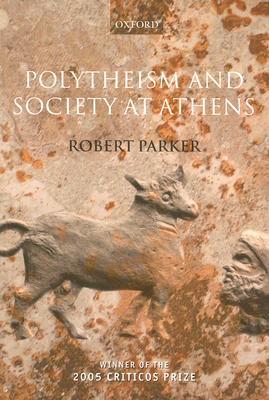Some years ago, at a seminar on Homer for mostly Greekless scholars, an eminent American conservative opined that, whatever merits there were in the civilization of ancient Greeks, no one could take their childish religion seriously. Somewhat testily, I replied that a religion that had attracted the attention of such considerable scholars as Ulrich von Wilamowitz-Moellendorff (I’ll keep this short), A.N. Cook, Walter Otto, Martin Nilsson, Sir Hugh Lloyd-Jones, J.P. Vernant, and Walter Burkert could hardly be unworthy of serious scholarly attention, and no one interested in literature could fail to take a deep interest in a religious mythology that had inspired the imagination of non-Greek poets from Vergil to Eliot.
For most nonclassicists, Greek polytheism presents a problem. How could the people who “invented” our civilization have been so naive as to worship dozens of gods to whom they attributed so many unedifying and conflicting tales? Perhaps the question should be put the other way around: How could we suppose that the religion that inspired Sophocles and formed the mind of Plato and Aristotle could be anything but profound?
Before approaching the subject, some of the ideological rubbish that obstructs our view should be cleared away. Since at least Nietzsche, neopagans have argued that polytheism per se, which they claim defines the Greek mind, encouraged peaceful toleration of other religions. Socrates, who was accused both of atheism and of introducing alien gods, might have a different opinion. It is only from a rather rigid Judeo-Christian (I use the word advisedly in its literal sense) perspective that there is such a thing as generic paganism. Greek and Roman religion (to name two rather closely related examples) are quite different, and while comparative analysis is a useful tool, it must be preceded by a careful and minute examination of the facts that can be discovered.
The comparative study of ancient religion has been distorted by an obsession with dying gods, with imagined conflicts (as between Apollo and Dionysus, Chthonic and Olympian), with Mystery cults, and with so-called Orphism. The alternative approach, a patient and exhaustive scrutiny of every scrap of literature or fragmentary inscription, while it may not lead to breathtaking conclusions, is the only method that an honorable scholar may employ. That was, in essence, Wilamowitz’s response to Nietzsche’s brilliantly irresponsible first book, The Birth of Tragedy.
In Polytheism and Society at Athens, Robert Parker eschews grand speculations, and, while he sometimes cannot see even a tree (much less the forest) for all the lichens and mosses of doubt and skepticism that he has deliberately accumulated to obscure the view, this book is a welcome addition to his earlier volumes on Greek myths and on the history of Athenian religion. Not intended as an introduction to Athenian religion, Polytheism provides an invaluable discussion of religion’s function in Athenian society. Parker takes up several important questions: Who were the priests and what did they do? What reverence did Athenians pay to their ancestors? In what sense and to what degree can tragedies and comedies be regarded as religious rituals? How were festivals such as the Panathenia and the Anthesteria managed, and what is their broader social and political significance?
It would do the author an injustice to summarize his arguments without providing his evidence. His approach combines a meticulous combing of the ancient evidence with the clever device of searching the secondary literature, looking sometimes for stray insights and sometimes for the least foolish opinions offered—often, by quite foolish scholars, whom he always treats (or at least pretends to treat) with respect.
Parker is better at raising questions and scrutinizing evidence than he is at drawing conclusions, and the frequent occurrence of such phrases as “paucity of evidence,” “little is known,” “evidence is lacking,” “were the evidence fuller,” “attested . . . though rather shakily,” and “further details remain very unclear” bears witness to the scholar’s honesty as much as to the timidity and equivocation that has infected scholarship to the point that it sometimes seems as if writers of academic books are concerned less with making sense of the evidence than with not being caught making a mistake.
Like too many academic works today, Polytheism reads in places like footnotes in search of a text. This is a pity, because no one is in a better position to shed light on the richness and diversity of religious practices in ancient Attica than Parker. With all its limitations, Parker’s book is an indispensable work for students and scholars and for anyone who seriously wants to understand Athenian democracy.
[Polytheism and Society at Athens, by Robert Parker (Oxford: Oxford University Press) 544 pp., $125.00]

Leave a Reply